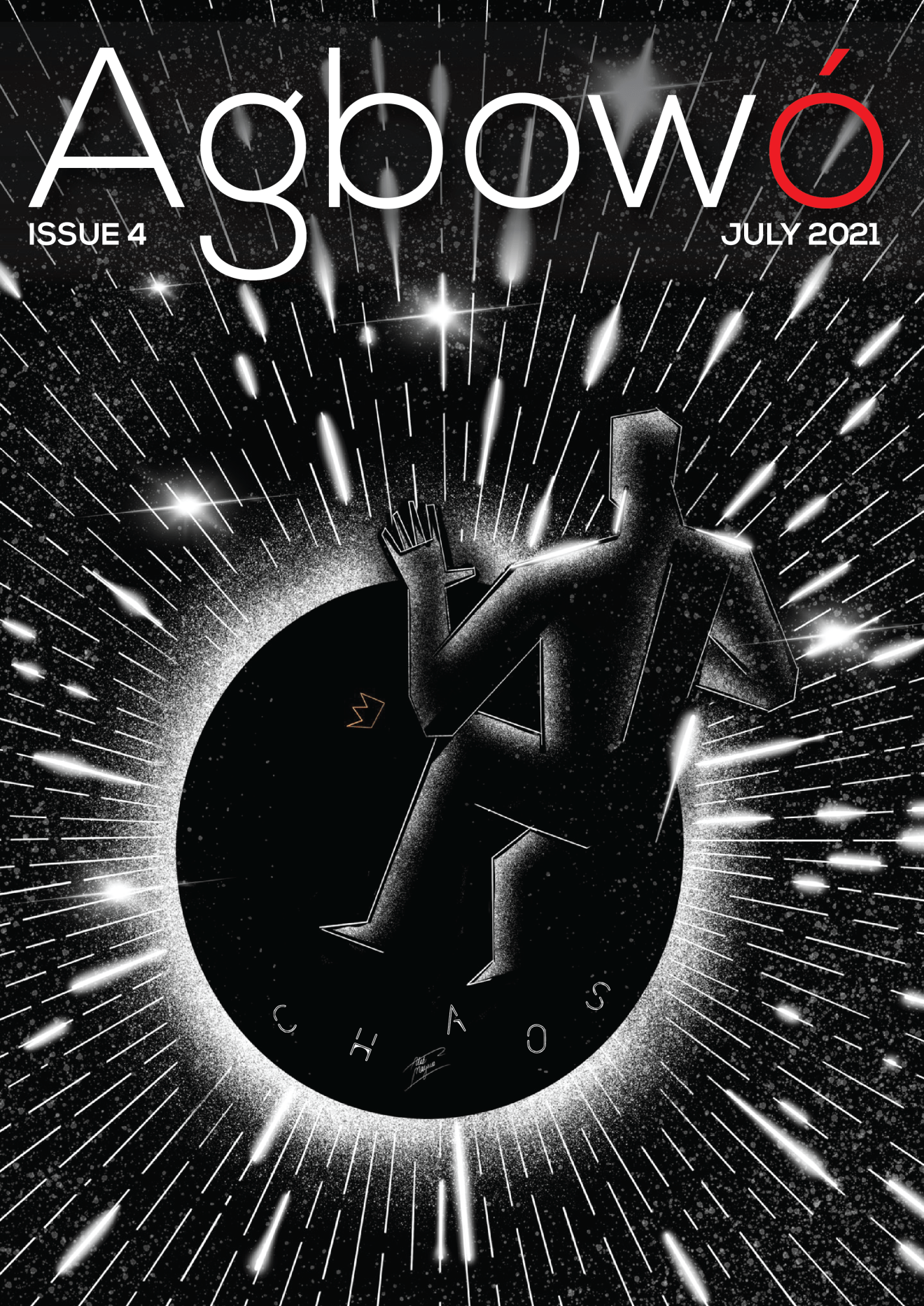
Nigeria-based literary magazine Agbowo has released a new issue. Themed “Chaos,” the latest issue, which is the fourth installment, was published on July 18. It features a wide range of writing from writers across the African continent.
Founded in 2018 as an offshoot of UITES, a literary collective at the University of Ibadan, the magazine is named after a street in Southwestern Nigeria. In their relatively short years of existence, they’ve sustained a commendable dedication to publishing exciting work by African writers, as well breathtaking visual art. The team is currently led by writers Adedayo Agarau, who is Chief Editor, Hauwa Nuhu Shaffii who is Non-fiction Editor, and Nome Patrick Emeka who is Poetry Editor. The stunning cover image titled “Descent” is the work of Mayowa Alabi.
Commenting on the theme of “Chaos,” Editor-in-Chief Moyosore Orimoloye notes in a press statement:
By embracing chaos, the artists in this issue cast doubts on the mythological truism of the act of creation, and by extension creativity, being a fashioning of order out of the chaotic – out of a formless world. They attest that, as long as humans and language exist, the world remains formless.
The contributors to the “Chaos” issue include Nnadi Samuel, Olumide Manuel, Zwelethu Machepha, Bayo Aderoju, Sodiq Oyekanmi, IFEOFDESIGN, Praise Osawaru, Sayo Ajetunmobi, Erere Onyeugbo, Mayowa Alabi, Servio Gbadamosi, Owo Anietie, Oluwatobi Poroye, Bukunmi Oyewole, Ayokunle Falomo, Shaun Pieter Clamp, Erick Manyara Mochache, James Gikonyo and Sogallo.
Read the editor’s note and download the new issue here.
I have often imagined aliens watching games of football from their cosmic perches. How must it be for them? What questions – if questions are a concept among them – might they ask? Why are they darting in pursuit of that sphere?Why, after all the struggle to get it, hasten to kick it away? After 0.00017revolutions, why do they simply leave the rectangle?By seeing enough games, they might slowly map out the rules, but what about the concept of sport? To the other, everything is nebulous – chaotic.
In this way, one arrives at a definition of chaos that rejects it, casts it as temporary, subjective, as an ignorance of the rules, a lack of parameters by which to make appropriate forecasts, and a substrate for the ever-probing eyes of science and measurement. If the seemingly chaotic scattering of sand can be modelled by equations, why not hedge our bets on social psychologists figuring out the workings of a mob? The scientific method thus avers that chaos is merely a precursor to understanding. But can such a definition succeed?
Some will argue that it has–we cannot, after all, deny the constant erosion of external indeterminacies in bacteria, the oceans, and the cosmos. With every new publication in Science, more details about the details of the living universe emerge. But what about our internal indeterminacies? What about that inner chaos that is stirred when the simple “how are you?” is posed to us? What instrument will reliably and reproducibly measure the weight of our joys? What equations will help us properly fit the data, and allow us reach a numerical understanding of ourselves? Continue reading.









COMMENTS -
Reader Interactions